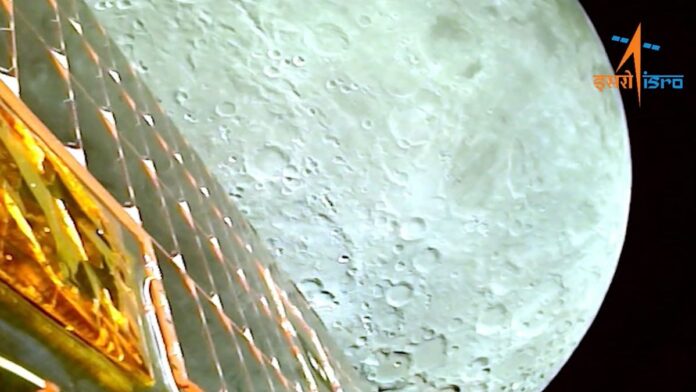India’s Chandrayaan-3 lunar lander is targeting Wednesday (Aug. 23) for a soft touchdown.
The Chandrayaan-3 moon lander is aiming to bring an Indian Space Research Organisation mission safely to the surface for the first time on Wednesday. Touchdown is expected at 8:34 a.m. EDT (1:34 p.m. GMT, or 6:04 p.m. in India.)
You can watch the broadcast live on ISRO’s YouTube channel starting at 7:50 a.m. EDT on Wednesday (1250 GMT, or 5:20 p.m. in India). If ISRO indeed touches down, it will mark the first soft landing on the moon for India. Only three other countries have accomplished such a feat: The United States, the former Soviet Union and China.
Related: Chandrayaan-3: A guide to India’s third mission to the moon
What time is the Chandrayaan-3 mission landing on the moon?
The 6-billion-rupee (roughly $73 million) Chandrayaan-3 is expected to touch down at 8:34 a.m. EDT (1:34 p.m. GMT, or 6:04 p.m. in India.) That timing was provided by ISRO several days ago and the exact touchdown moment may vary depending on how the mission is going.
The mission will bring to the lunar surface a lander, called Vikram, and a small rover called Pragyan. The duo will explore the surface for a lunar day (roughly 14 Earth days), if all goes according to plan. Then the long lunar night will descend on the robotic pair and likely deplete their batteries forever.

Can I watch Chandrayaan-3 land online?
You can watch the broadcast live on ISRO’s YouTube channel, also visible above this article, starting at 7:50 a.m. EDT (12:50 p.m. GMT, or 5:20 p.m. in India.)
The exact broadcast length is uncertain and the timing of mission milestones (including landing) may vary depending on how things are going.

What is riding onboard?
The lander, Vikram, is roughly 3,900-pound (1,752-kilogram) in mass, including 57 pounds (26 kgs) for the rover, Pragyan.
The lander includes:
- Chandra’s Surface Thermophysical Experiment (ChaSTE) to measure thermal conductivity and temperature on the surface;
- Instrument for Lunar Seismic Activity (ILSA) to detect moonquakes;
- A Langmuir Probe to estimate the density and variation of plasma, or superheated gas, in the moon’s environment;
- A Laser Retroreflector Array (from NASA) to measure distances using laser ranging.
The rover includes:
- Alpha Particle X-ray Spectrometer (APXS) to look for elements in the lunar soil and rocks;
- Laser Induced Breakdown Spectroscope (LIBS) to examine the chemical and elemental composition of the lunar surface.

